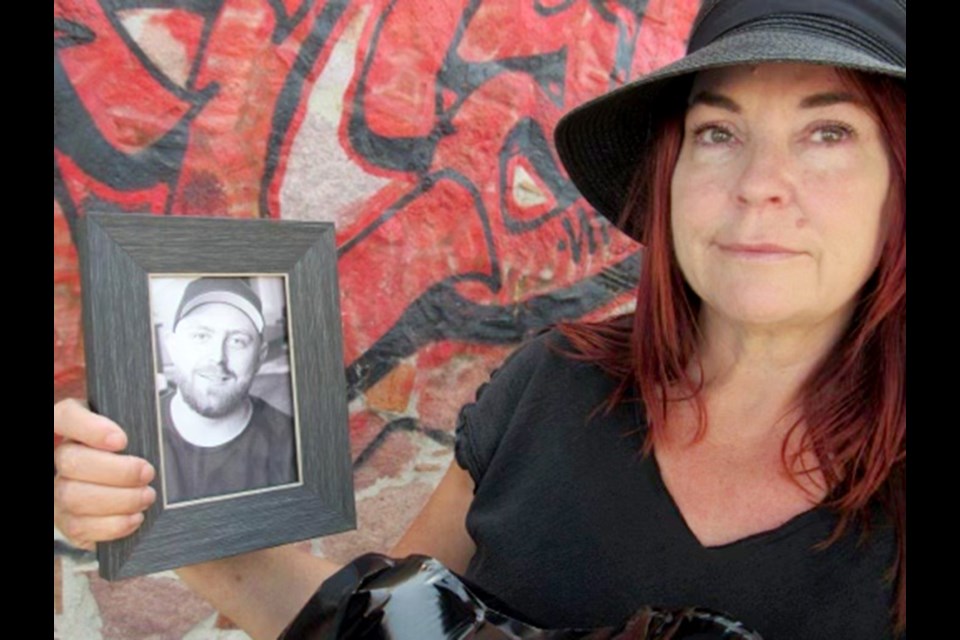Vicki Cartwright’s son, Harley, was 19 when he was a passenger in a vehicle that wrapped around a tree. Firefighters had to use the Jaws of Life to cut him free.
Both of Harley’s legs were broken, among other injuries. Drugs helped dull the pain. Eventually, they took his life.
On Saturday (Aug. 27), people and families whose lives have been touched by drugs will gather at Pioneer Memorial Park in Port Moody to mark International Overdose Awareness Day, organized by the Tri-Cities Overdose Community Action Team.
They’ll share their stories, seek comfort in their common experiences and — hopefully — help educate others about how easily a similar tragedy could upend their lives.
Cartwright said Harley was a “wild, fun, crazy child” who was “full of life.” He played all kinds of sports, travelled, loved boating.
The accident changed that.
Harley had to relearn how to walk. He hurt all the time.
Prescribed OxyContin painkillers helped him function. But they were also addictive.
When doctors would no longer sign Harley’s scripts, he turned to the underground network of online and street dealers who didn’t really care what was in the pills they sold.
Cartwright said as Harley spiralled she tried to help. She subsidized the rent for an apartment in New Westminster so he wouldn’t live on the street. She got him into treatment programs.
“You trust the system, but you have to help them,” Cartwright said.
But, she added, the stigma of drug abuse worked against Harley. There was a lot of shame associated with his addiction.
Hospitals treated him differently when he overdosed. Treatment programs would be derailed by the slightest misstep.
Cartwright said the onset of the COVID-19 pandemic made life for Harley even more difficult as resources dried up.
On Sept. 23, 2020 Harley was admitted to Royal Columbian Hospital in New Westminster. He hadn’t been able to eat or drink for a week. He was dehydrated. He tested positive for fentanyl in his system.
Early the next morning, Harley died. He was 31 years old.
Cartwright said in addition to the grief she felt at the loss of her son, she also felt disenfranchised from society.
“People think they made the choice to die,” she said of her son’s addiction. “But they’re taking medicine to survive.”
In 2021, more than 2,200 British Columbians died because of the province’s toxic illicit drug supply, according to the BC Coroners Service. This year’s numbers are on a similar pace.
“The ever-increasing toxicity of the unregulated, illicit drug market is taking a heart-breaking toll on the lives and well-being of members of our communities,” said chief coroner Lisa Lapointe in a release last Tuesday (Aug. 16), adding more than 10,000 lives have been lost since the province declared illicit drugs a public health emergency in April 2016.
Cartwright said the only way to reverse those numbers is to start conversations in communities about what is happening on their streets.
“It’s really out there,” she said. “It could be anybody’s child.”
The International Overdose Awareness Day event at Pioneer Memorial Park runs from 11 a.m. to 3 p.m. with guest speakers, artists, as well as naloxone training and resources from harm reduction organizations.



